
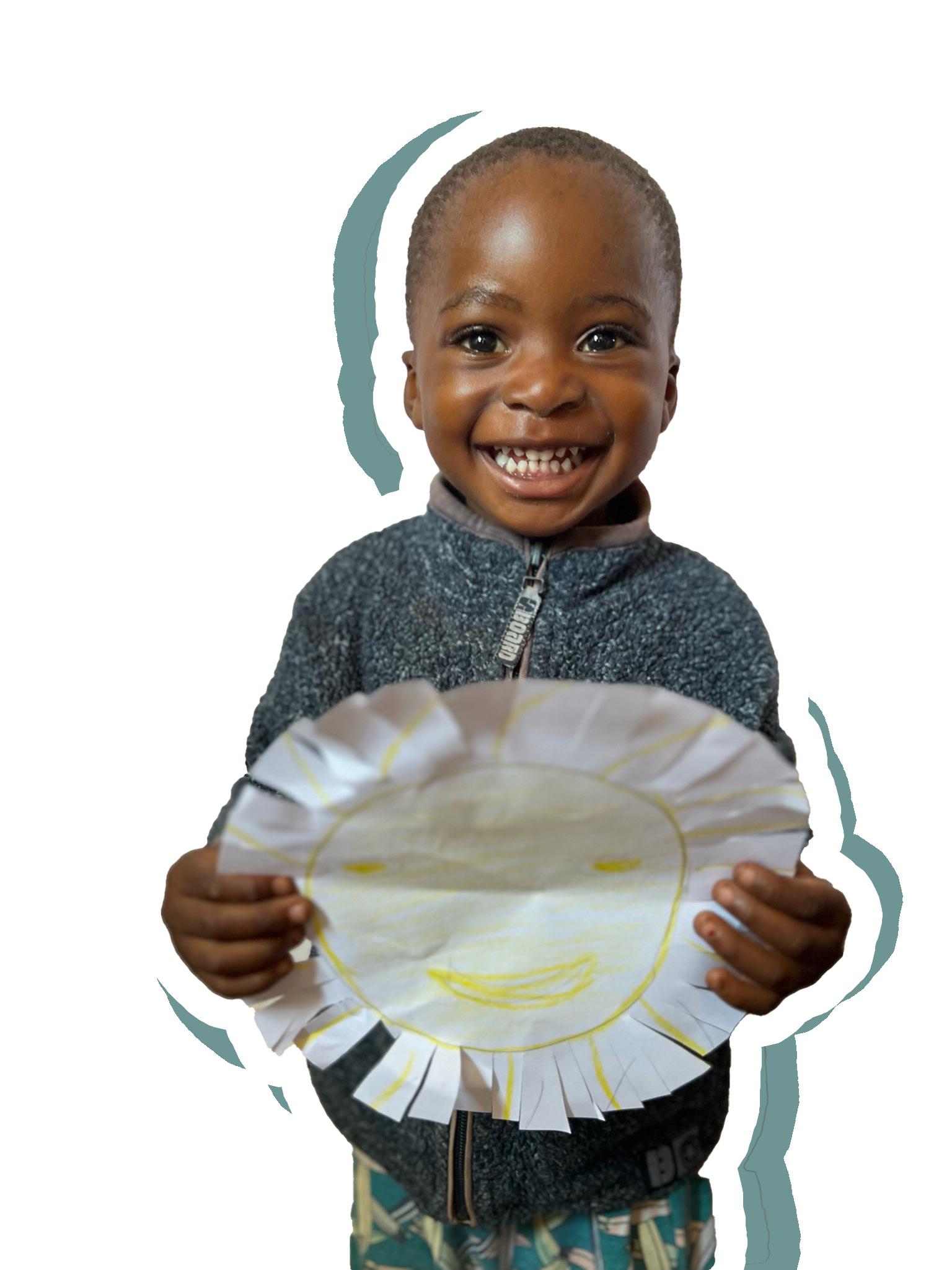
www.learntoplay.org
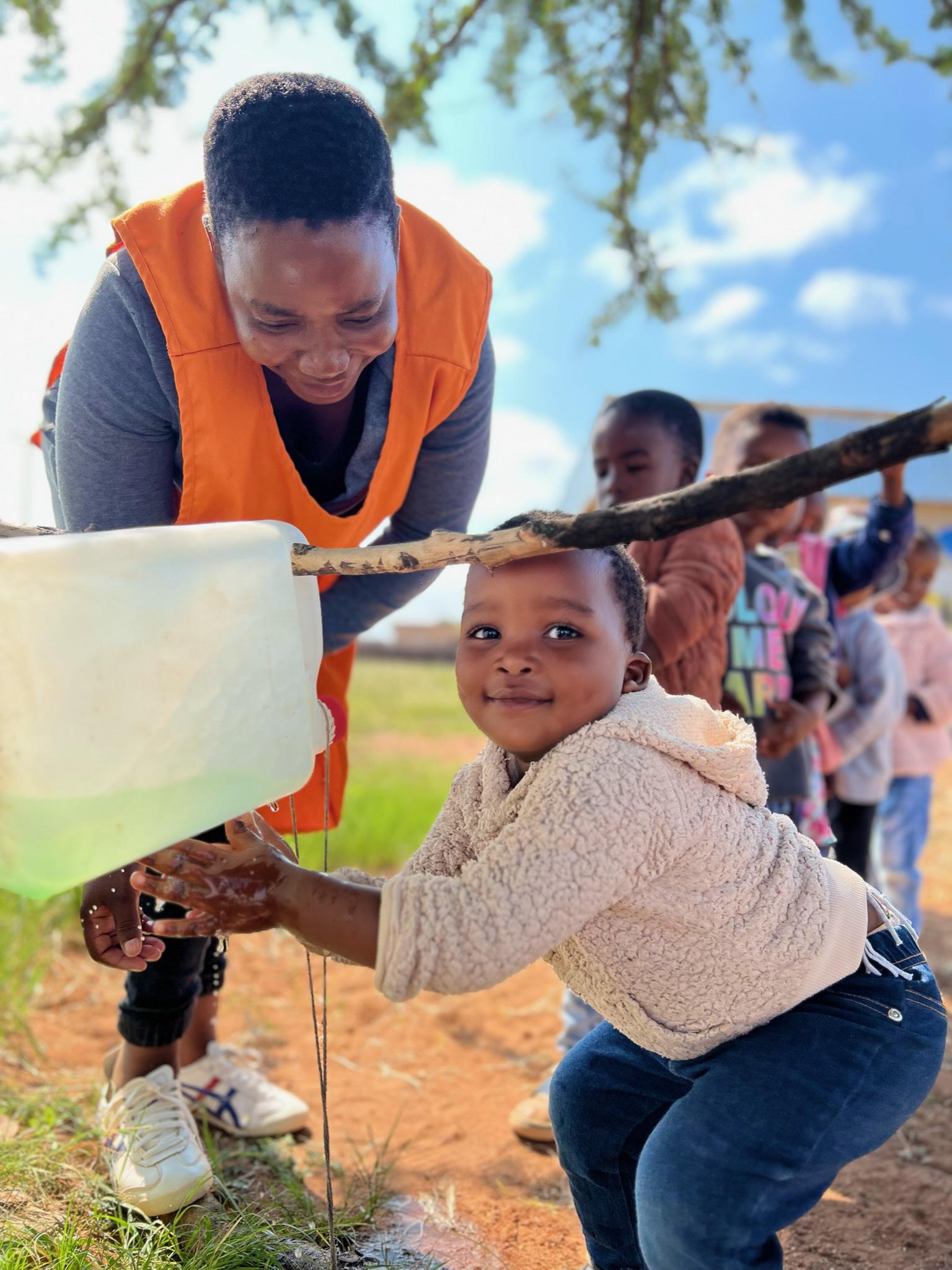

1.

Mindfulness is to pay attention on purpose to the present moment.
Why practice mindfulness?
Children and adults alike are not immune to stress and anxiety. Practicing mindfulness helps us develop resilience and positivity. It also promotes emotional balance and self-regulation.


LAURIE GROSSMAN




Let’s Play!
Trace your finger along the outline of the star. Breathing in where it says IN. As you breath out say a positive affirmation aloud to yourself e.g I am strong. I can do hard things. I am calm. Now create
www.learntoplay.org 2.
letter from the chairperson
The fall of rain has always been heralded in Africa as an omen of great blessings. Celebrated, treasured and revered, the first drops of rain dancing down from the sky bring with them boundless potential and possibility. Despite the dry climate of 2023, proverbial rain came for Learn To Play throughout the year, and with it the necessary environment for growth of this incredible organisation.
As at the end of 2023, Learn To Play hosts 515 children across 11 communities in Botswana. Our impact extends through the rest of Africa through our Parent Playbox initiative, training in Uganda, engagements in Kenya and Rwanda, and relationships with partners and experts from across the globe to shape both our play-based curriculum and our monitoring and evaluation tools. We welcomed more partners and supporters, more collaborations for new communities, and more progress, each time and every breath with children at the heart of it all. Our Maatla Mamas are now even more strongly trained to incorporate mindfulness in their play practices for children and are increasingly being empowered to create more direct and indirect value for their communities, from Bere and Bontleng to Kavimba and Pandamatenga, to name just a few. Children are showing enhanced outcomes as they make their way into “big school”, with 2023 being a record year for 200 graduates across Botswana from our established playgroups.
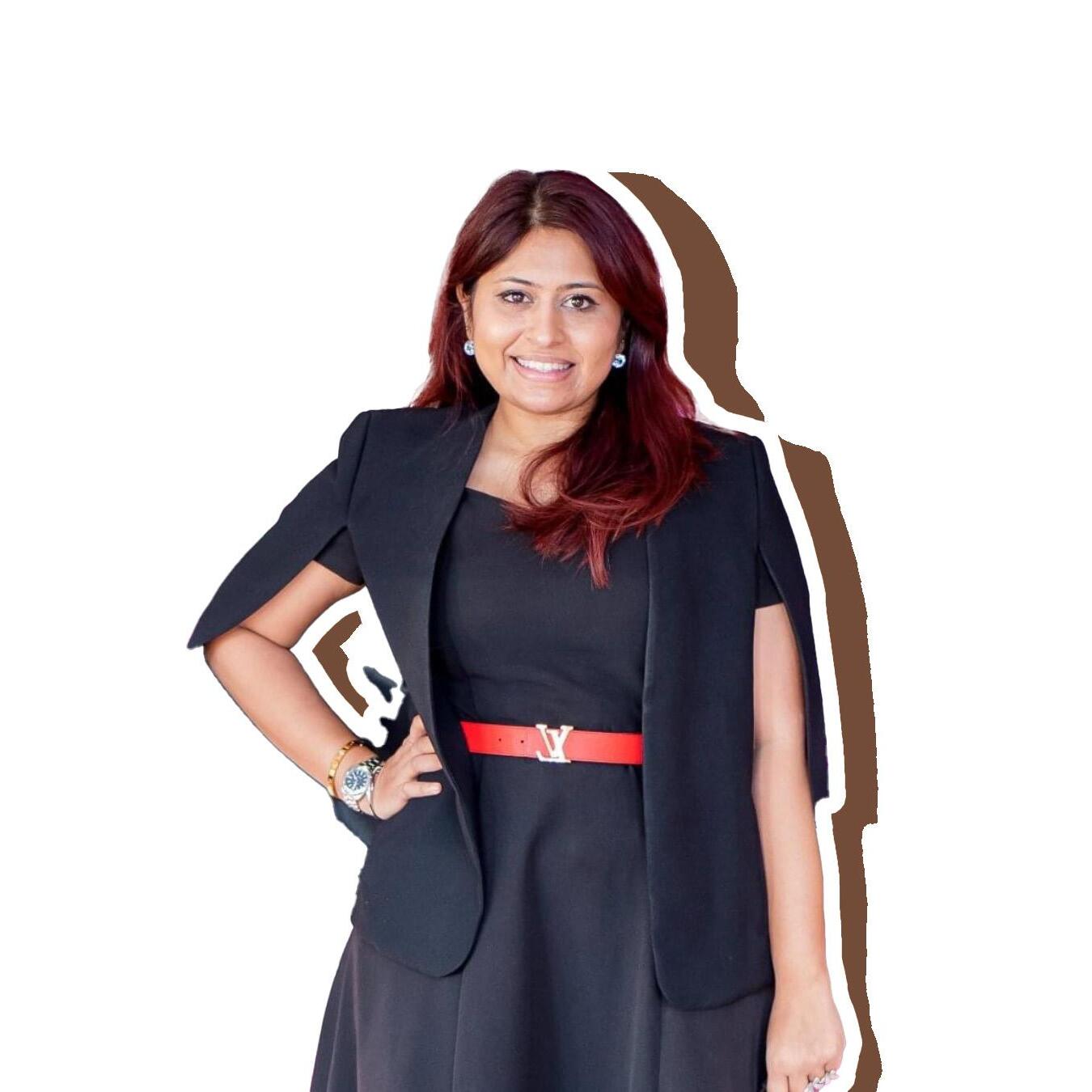
The reality is that the work of the Learn To Play team and all in its ecosystem (Mamas, community partners, parents/guardians, advisors, Board, staff, volunteers, sponsors and children) is very much akin to the precious rain we celebrate so much. Without it, there is no growth, no nurture and no future. As we invest in empowering young minds through greater focus on early childhood education, we water and sow the seeds for phenomenal doctors, lawyers, mothers, fathers, social workers, leaders, changemakers and more.
Many a seed was planted in 2023, and many a sprinkling of all that is necessary to water these towards progress and happiness, and we could not prouder, nor more determined to continue onwards.
Re a leboga (thank you).
Taazima Kala-Essack Board Chairperson
3.
letter from the founder
Dear Friends and Supporters,
As I reflect on Learn To Play’s journey over the past year, I’m filled with gratitude and awe at the strides we’ve made together. Our 2023 impact report stands testament to the dedication, passion, and unwavering commitment of our team, partners, and Play Heroes who have helped us double in size and impact.
Last year was a year of growth, exploration, and transformation. We ventured across the vibrant playgrounds of Africa, tirelessly working to spread the joy of mindful play. Through our partnership with Kids Collab and Rippleworks, we honed in on developing the Parent Playbox. This collaboration has enabled us to reach even more parents, fostering stronger caregiver-child relationships and nurturing the seeds of curiosity and happiness in every home.
Our achievements resonate deeply with our mission to uplift communities and create sustainable change. With the introduction of our mindful play curriculum and by embracing digital platforms for monitoring & evaluation, we’ve enhanced the effectiveness and reach of our programmes to ensure continuous improvement.
One of our proudest achievements lies in the success of our Maatla Mamas. The word "maatla," meaning strength, embodies the resilience and determination of these remarkable women who have uplifted their communities by leading playgroups everyday. I am thrilled to share that 100% of our Maatla Mamas have risen above poverty, a testament to the transformative power of supporting women as changemakers for their communities.
Looking forward, our vision is bold and ambitious: we’re pioneering partnerships for universal access to early childhood education in Botswana and we remain committed to delivering the Parent Playbox to families across Africa. By forging strategic partnerships with the government, local communities and partner organisations, we aim to create a ripple effect of change that will resonate across the continent.
As we embark on this next chapter, I am humbled by the unwavering support and dedication of our community. Together, we will continue to dream, innovate, and strive for a world where every child has the opportunity to play, learn and thrive.
With heartfelt gratitude, Priyanka

www.learntoplay.org
4.
To weave play into the fabric of African early learning for every child on the continent.
vision mission

Making play-based early childhood education accessible in Africa through playgroups, training and playful parenting programmes.
values
Build communities of action by listening, learning and adapting.
Prioritise learning through play by investing in people, programmes and partnerships that strengthen children’s environments.
Cultivate mindfulness because happy and healthy humans uplift communities.
Champion African cultures, staying rooted in Botswana.
See through a lens of possibility: we’re bold, we’re creative and we’re willing to take risks.
5.
CAREGIVERS
LTP's teemane (diamond) model

CHILDREN
PARENT PLAYBOX NURTURINGCARE
EARLYLEARNING PROGRAMMES
LTPEDUCATOR TRAINING
MAATLA MAMAS & EDUCATORS
We work with caregivers and educators, building their confidence and capacity to engage children in play-based learning so that every child can reach their full potential.
LEARN TO PLAY
6.
the LTP model
Playgroups are delivered by training women without access to economic opportunities to become educators and run playgroups for children aged 2-5 without access to early learning. LTP partners with village development committees and local governments to facilitate playgroups.
Parent Playbox - For caregivers of children aged 0-5 who want to feel confident to support their child’s learning journey, The Parent Playbox provides caregivers with the knowledge, resources and training on how to purposefully interact with their children, through 52 activities for a whole year of early learning at home. The Parent Playbox prioritises improved family wellbeing and early childhood education outcomes through playful parenting.
Our educator training consists of 12 modules that cover play-based learning, resource development, child safeguarding and our mindful play approach among other topics. Learn To Play’s mindful play programme forms a key component of all programming, focused on social & emotional development particularly for children in marginalised and crisis settings. Our training can be broken down into individual modules to provide professional development for organisations across the continent.
LTP has 3 primary solutions to achieve its objectives: 1. 2. 3. tolearn play TM 7.
Mindful Play Approach
Learn To Play's mindful play approach is a transformative method that underscores the vital fusion of mindfulness and play in early childhood education. This approach is grounded in the understanding that children learn best when they are happy and healthy, engaged in activities that foster both cognitive and emotional development. By integrating mindfulness practices such as deep breathing, positive affirmations, gratitude reflections, sensory awareness, and intentional focus with playful activities, children develop crucial skills such as self-regulation, empathy, and resilience.
Every day begins and ends with a mindfulness activity at our playgroups, setting the tone for a day of joyful learning, inclusion and belonging. The benefits of this approach are exponential. Mindful play not only enhances children's ability to concentrate and manage their behaviour and emotions but also promotes a sense of wellbeing, increased confidence and kindness towards themselves and others. At Learn To Play, we create a nurturing environment where children are encouraged to explore, create, and collaborate through mindful play experiences. Our curriculum is carefully designed to incorporate age-appropriate mindfulness techniques into various play-based activities, fostering a holistic approach to learning and growth.
Our training programmes, The Parent Playbox and our mindful play curriculum resources equip caregivers and educators with the knowledge and skills needed to effectively implement mindful play in their classrooms and their homes. Through ongoing professional development, we ensure that our Maatla Mamas are supported to create enriching learning experiences that promote children's overall wellbeing.
The impact of our mindful play approach has been profound, particularly in communities in Uganda, South Africa and Botswana…Even all the way in Bangladesh with Rohingaya refugees, where we have witnessed children, parents and educators developing greater emotional intelligence, improved social interactions, and a genuine joy for learning. This approach not only benefits individual children but also contributes to creating more compassionate and resilient societies as a whole.
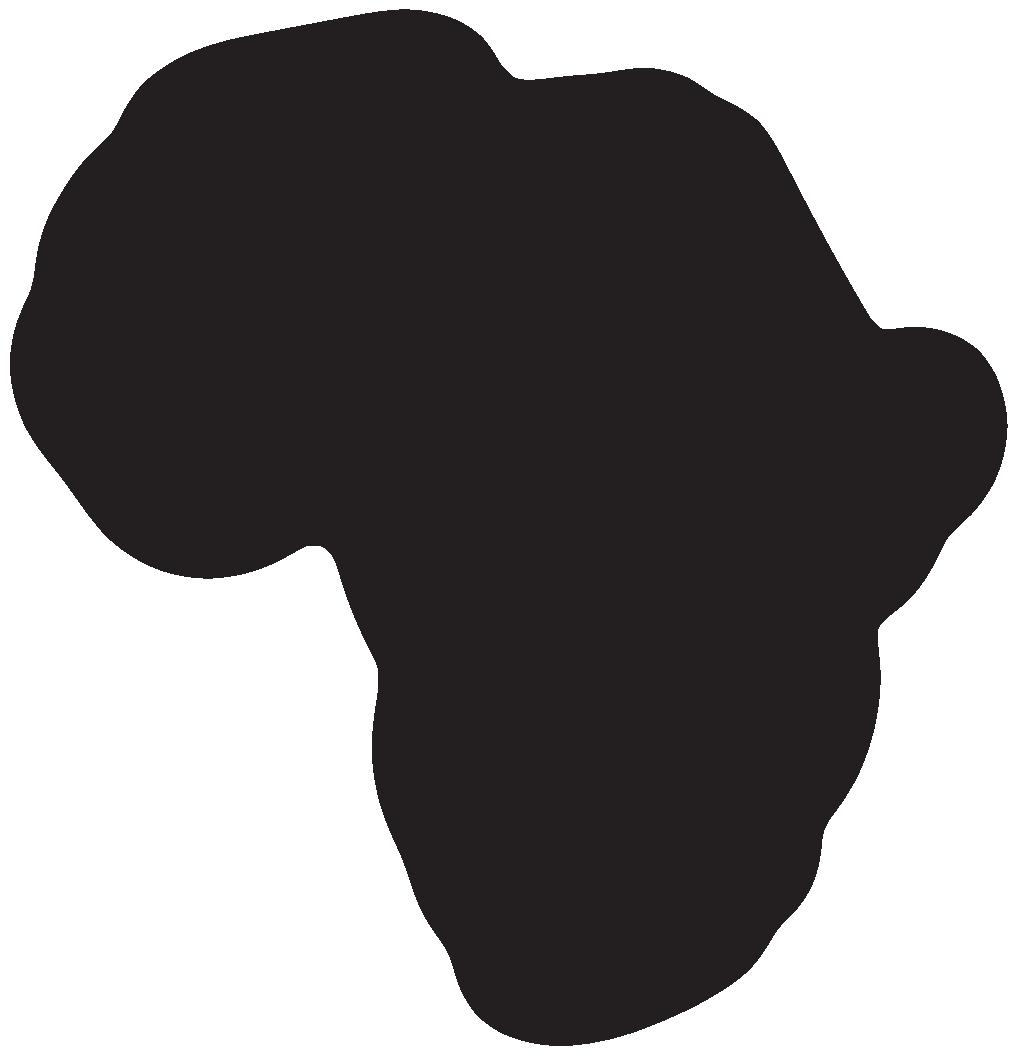
8.
activity bumblebee
bee breaths




Sit down comfortably, like a bumblebee resting on a flower.
Keep your ears covered with your thumbs and your eyes covered with your fingers. Feel the buzz of your bumblebee hum in your body as you breathe out. 1. 3. 4. 5. 2.
Put your hands on your face, with your thumbs gently closing your ears and your index and middle fingers lightly covering your eyes.
Now close your eyes and take a deep breath in through your nose.
As you breathe out slowly through your nose, make a humming sound like a bumblebee, "mmmmmm". Feel the hum vibrate all around your face.
Parents from Botswana who have done the mindful play activities with their children said:
I felt calm
I see and feel things I didn’t before, the wind in the air, movements, sounds
I emptied my stomach from old energy
I notice everything more Everything seems brighter and more alive
9.
testimonials


Educator in Kyaka II refugee settlement, Uganda: After the bumblebee breathing activity some have said they wanted to fall down as they were closing their eyes & ears. They are happy and laughing.
Rohingya teacher in Kutupalong, Bangladesh
I have never done this before and now I understand that this mindful play system is actually able to bring a bad and careless mind back to the right track instantly. We can overcome our own depression by practicing them, but this system seems completely different and we think it is a very effective approach.


Child in Kutupalong, Bangladesh: After the breathing activities, there is peace in my mind, I forget all the troubles in my mind and I live in a peaceful environment.
Rohingya teacher in Kutupalong, Bangladesh: Mindful Play is a newly invented effective method of excellent mind refreshment which everyone feels will give immediate benefits when practiced. Everyone has found this method very attractive.
10.
Research in early childhood education suggests that when educators are supported in their wellbeing and provided with continuous training, children experience more robust developmental outcomes.
*Estimated number of children
All mamas noted overall improvements in the areas below after becoming a Maatla Mama in a survey conducted at the beginning of 2024 :
educators
LTP has trained 57 Maatla Mamas and 100% of those currently working have been lifted above the poverty line while 40% of them have gone from unbanked to banked.
increased sense of purpose and fulfilment
positive changes to their physical health and lifestyle since joining the programme
57 maatla mamas trained
impact
11.
mental wellbeing 2021 2022 2023 2024 0 5 10 15 4 5 11 15 playgroups 11 2021 2022 2023 2024 0 200 400 600 800 116 207 515 796* 515 children attending daily
150
testimonials
Out of the 22 learners that I have here, 20 are from Learn to Play, so they are very fluent in everything that they do. They can colour, they can trace, and they can say out their alphabets.
~Reception Teacher
Kavimba Primary School
Dumela. My name is Sikwani Machola. I’m from the Pandamatenga playgroup. I joined Learn To Play in April 2023. I was happy to be one of the chosen to attend training in Gaborone. I had a little bit of knowledge about what happens in Learn To Play so when I got to Gaborone I learnt a lot about child development through play. It has also helped with employment in the village. I learnt to accept and know how to care for a children with special needs. I wish Learn To Play can continue with the good work.
~ Maatla Mama
~ Parent in Bontleng
12.
Kavimba
Mabele
Pandamatenga
Bontleng
Kokotsha
Kacgae
Sankuyo
Nata
Dukwi
Bere
Gopong
play-based programme assessment tool
Frustrated by existing, inappropriate early years assessment tools, Children on the Edge and Learn To Play, in partnership with The University of Chichester (UK), have developed a Play-based Programme Assessment Tool, designed to help organisations identify gaps in their play-based early childhood education provision and ultimately improve the quality of delivery.
Using a play-based approach, the tool enables organisations to collate standardised data on child development and wider programmatic effectiveness, against evidenced, contextually appropriate and externally verified developmental outcomes. The outcomes relate to complex and crucial areas of child development under the following domains:
Gross and fine motor skills
Social and emotional skills
Language and literacy
Creative thinking
Cognitive development
The second part of the assessment tool is the environmental assessment in which educators and children are observed in their usual early learning environment, following their daily routine. The observation considers child protection, health & safety, equipment and resources, implementation of purposeful play, interactions and relationships, inclusive play, attitudes and behaviours, continuous child assessment and family engagement.
In these facets, LTP playgroups scored 77% with particular strengths in play-based learning and inclusive play. In 2024, we will be working towards strengthening family engagement at playgroups.
13.
learn to play
The sample of children assessed in LTP programmes showed the following results: 7% 73% 20% 20% of children were below average were developmentally on track with support were independently meeting milestones
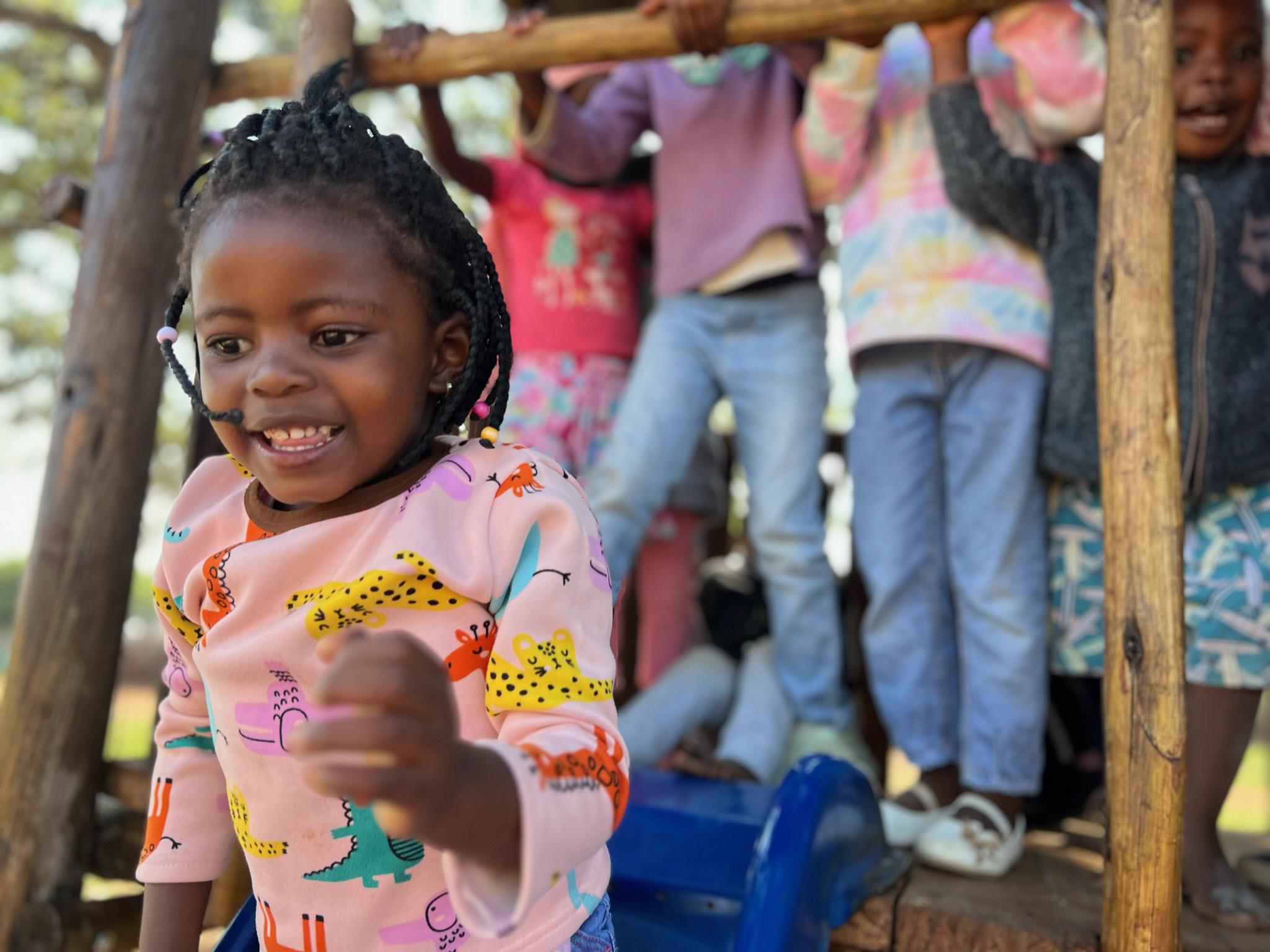
The data and analysis from the two elements enable organisations to reflect upon their practice, identify strengths and gaps, and create a roadmap to improve programming, ensuring that young children are able to access the best possible learning and development opportunities.
In November 2023, Learn To Play and Children On The Edge implemented the tool in both Botswana and Uganda respectively and received the first set of results which have been sent to the University of Chichester for evaluation.
The tool gave us an immediate snapshot of our areas of strengths and areas that require improvement in programming based on performance across key developmental areas. Additionally, we were able to compare the various settings and understand what specific support was required for any given playgroup area. Results showed that children in the Learn To Play programme were strongest in the areas of creativity & imagination as well as gross motor skills.
14.
TM
sustainable play earth warriors
The importance of integrating sustainable play approaches into education, particularly in addressing climate change education for young children, cannot be emphasised enough. Learn To Play's commitment to this cause is exemplified through our pilot implementation of the Earth Warriors programme in Botswana, generously supported by Theirworld. This initiative aims to educate both young children and their educators about climate change through engaging and age-appropriate, play-based activities.
The Earth Warriors programme in our playgroups has yielded promising results, showcasing the effectiveness of playful learning in fostering environmental awareness and action among children as young as three years old. By incorporating themes such as biodiversity, renewable energy, and waste reduction into play-based learning, Earth Warriors has empowered children to become proactive stewards of the environment.
The data is clear:
100% of our Maatla Mamas reported knowing more about climate change! Almost all our Maatla Mamas explained how climate change impacts their daily lives, but did not previously know how to teach, or the importance of teaching, climate change education to young children. Now, 88% of them feel more confident in teaching this topic to their students.
81% of children feel equipped with the skills to protect their environment 88% feel more confident teaching this topic to their students
15.
One of the key outcomes of our pilot programme is the noticeable shift in children's attitudes and behaviours towards sustainability. Through hands-on activities like planting trees, creating recycled art, and learning about endangered species, children have developed a deeper understanding of their role in protecting the planet. Moreover, the Maatla Mamas involved in the programme have reported increased enthusiasm and engagement among students, highlighting the positive impact of integrating climate change education into early childhood curriculum through playful and interactive methods. In fact, 95% of our children aged 3-5 say they want to protect animals and plants, and after the Earth Warriors programme, 81% of them feel equipped with the knowledge and skills to do so!
The success of the Earth Warriors programme underscores the importance of sustainable play approaches in education, not only for building environmental literacy but also for instilling values of responsibility, empathy, and global citizenship in young learners. Learn To Play remains committed to expanding such initiatives to create a brighter and more sustainable future for generations to come and we are excited to carry on this collaboration with Earth Warriors and Theiworld to build and co-create further resources for training educators, especially in sub-saharan Africa, on this critical area.

maatla mamas


16.
parent playbox
A Year of Growth and Innovation

In 2023, Learn To Play celebrated a year of development and expansion of the Parent Playbox, building upon the success of its initial pilot in 2022. LTP and Kids Collab embarked on a journey of refinement and enhancement to better meet the needs of caregivers and children in marginalised and crisis communities.
Moreover, the programme transitioned from a three-month pilot to a comprehensive 52-week curriculum, providing caregivers with one engaging activity per week to facilitate year-long early childhood education programming in the comfort of their homes.
Expanding its reach beyond Botswana and South Africa, LTP ventured into Uganda and Rwanda to gather feedback on the programme's transferability across different contexts, cultures, and languages. Leveraging this invaluable input, the programme underwent further refinement, leading to the development of an innovative element: language-neutral demonstrative videos for each of the 104 activities included in the Playbox. These videos, accessible via platforms like WhatsApp, aim to bridge language barriers and enhance the programme's effectiveness.
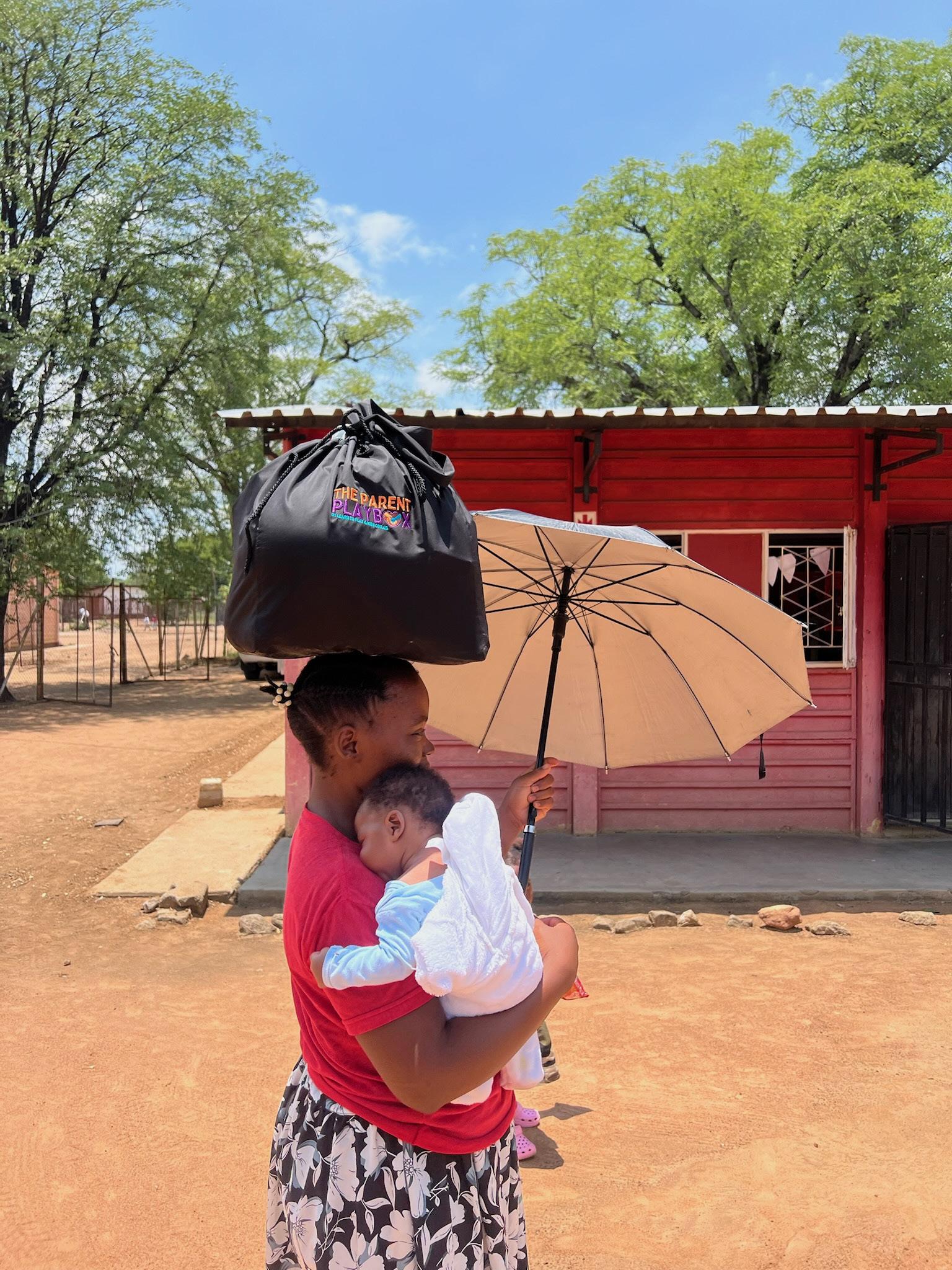
This all culminated with a three month project with Rippleworks to develop a go-to-market strategy for the Parent Playbox. Our focus is on creating a solution that is available for organisations across the continent, augmenting their programmes and deepening their impact with caregivers and children. The Rippleworks project resulted in a roadmap to growing the Parent Playbox’s impact across
17.
parent playbox
A Year of Growth and Innovation

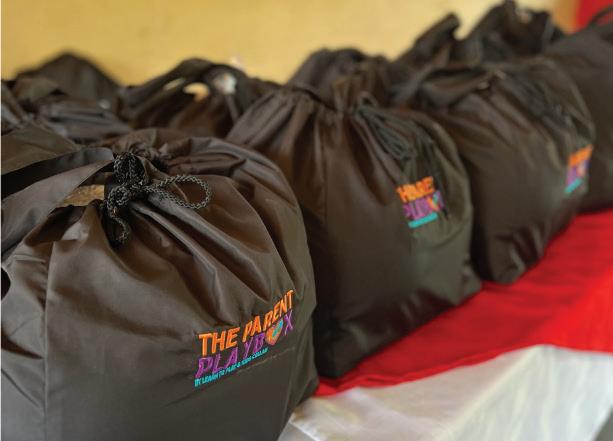

In a bid to enhance accessibility and portability, the Parent Playbox evolved from a crate to a single bag with straps, making it more convenient for families, especially those residing in remote areas. With its refined curriculum, enhanced packaging, and innovative technological component, the programme is poised to make an even greater impact on the lives of caregivers and children.

www.learntoplay.org 18.
In 2023, Learn To Play grew its impact significantly while increasing efficiencies in our operations. Despite only a 40% increase in our budget, we more than doubled our direct impact through playgroups and educator training while also reaching over 5000 children as a result of educators we trained across the continent.
We celebrated milestones such as our partnerships with Allan & Gill Gray Philanthropies for a multi-year funding commitment and Dovetail Impact Foundation now in their year two accelerator portfolio. In addition to the funding these opportunities brought, they have come with invaluable organisational capacity building opportunities for the leadership and team.
Additionally, strategic collaborations with companies like Kwando Safaris, Chobe Safari Lodge, and Nata Lodge in Botswana paved the way for sustainable partnerships, uniting private sector, government, and social impact efforts to advance early childhood development. As we move forward, LTP remains committed to maximising our impact and driving positive change in communities through innovative and impactful partnerships.

LTP REACHED children


5000 as a result of training educators across the continent.


2023
LTP DOUBLED our direct impact through playgroups & educator training.


19. fnancials
Total Expenses
*Unaudited financials - final audit was completed after the publication of this report.
fnancials 20.
P3,425,998 Community Programming - 70.5% Administrative Costs - 20% WASH & Environmental Safety - 7.5% Other Costs - 2%
Earned Income - 50% Grants - 32% Donations - 18% Community Programming 70.5% Administrative Costs 20% WASH & Environmental Safety 7.5% Other Costs 2% Earned Income 50% Donations 18% Grants 32%
Total Income P4,169,085
3 year strategy
Our goals over the next 3 years are as follows:
ensuring the highest quality of play-based learning
increasing access to early learning in champion districts
forming government & private partnerships, building networks and alliances for systems strengthening
Secure sustainable funding through multi-year donor partners and scaling our revenue generating programmes
Intensively cater to marginalised and the most vulnerable children on the continent, leveraging our expertise on playful learning and parenting programmes, through partnerships and collaboration
21.
in 2024 we are...
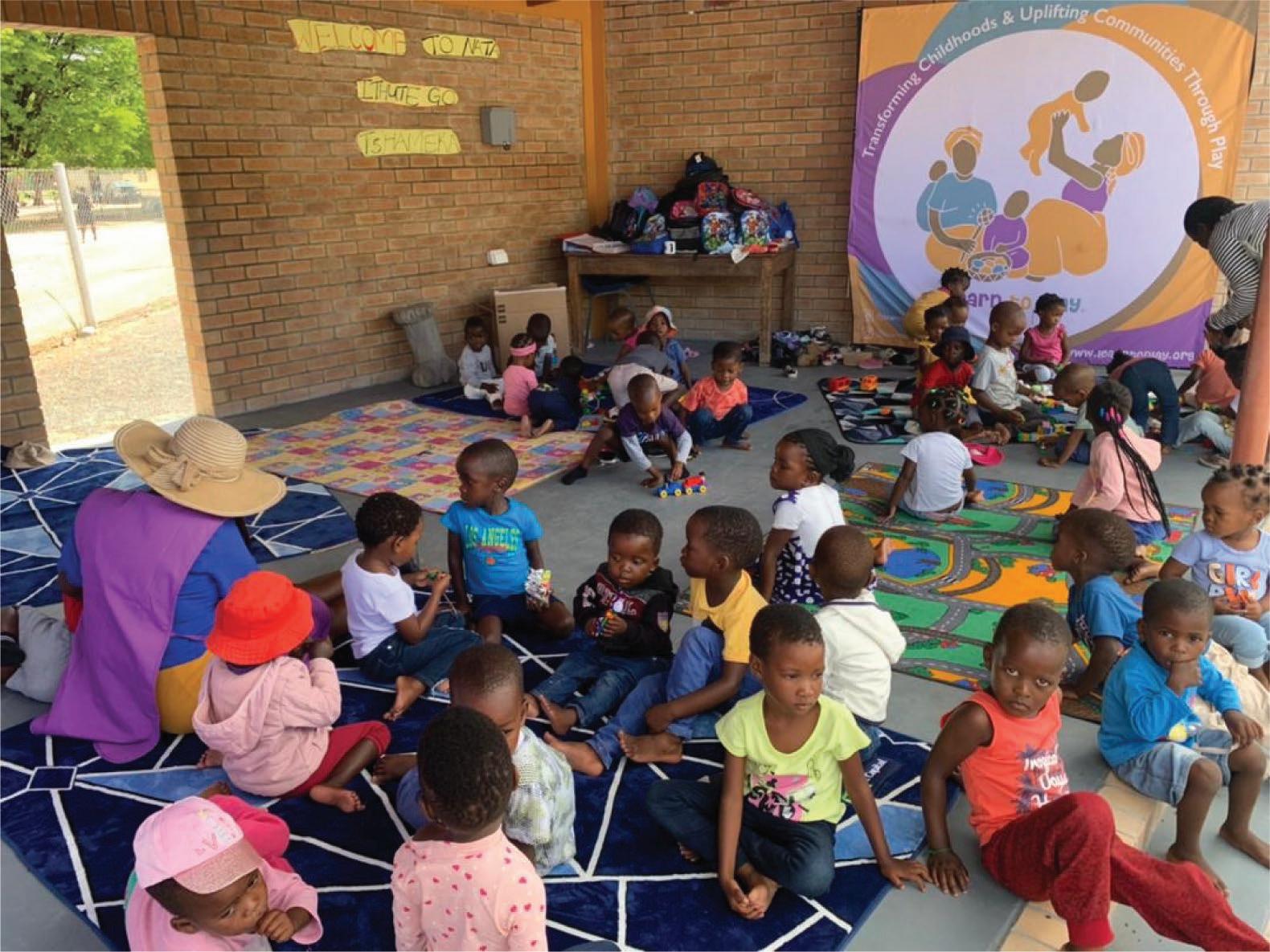
Strengthening our position as a leader in play-based learning on the continent.
Developing our team and organisational cultureensuring our workplace is a happy and healthy one that people enjoy being at. 2. 1.
Working towards universal access to early childhood education in Botswana by starting four playgroups and forming key partnerships and alliances.
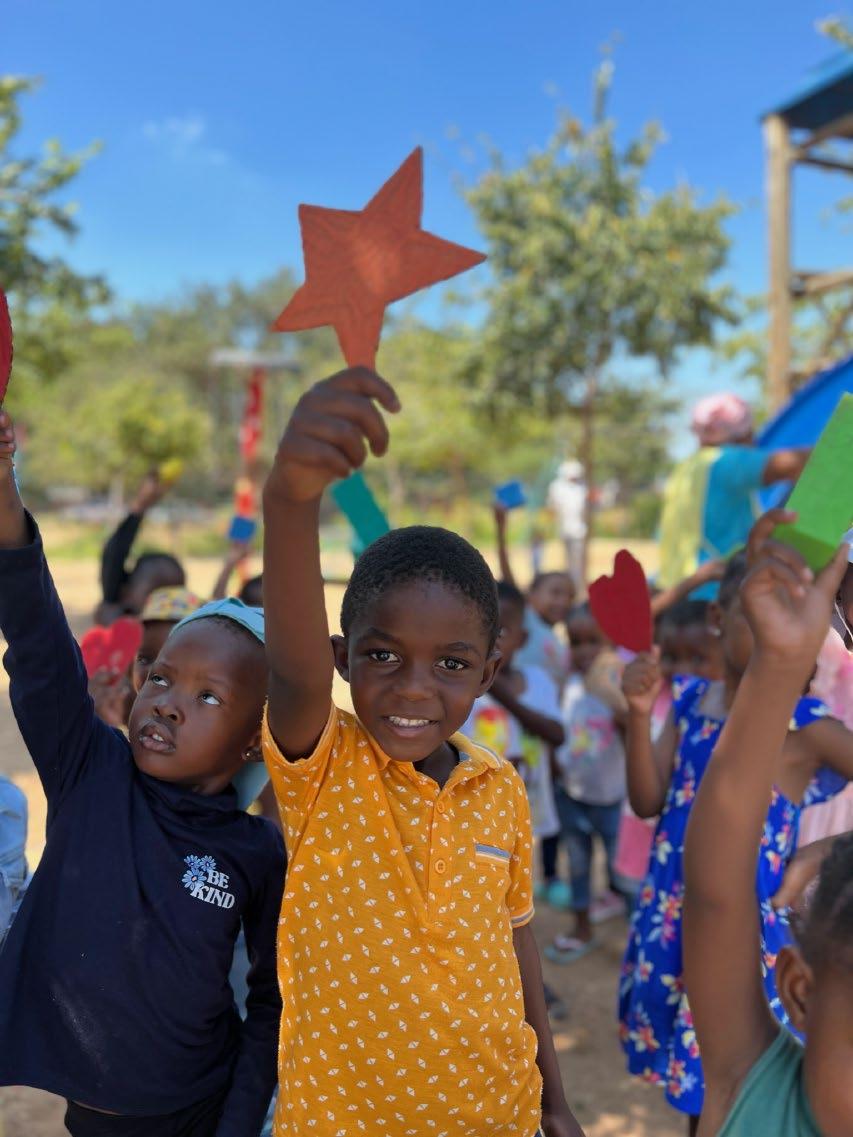
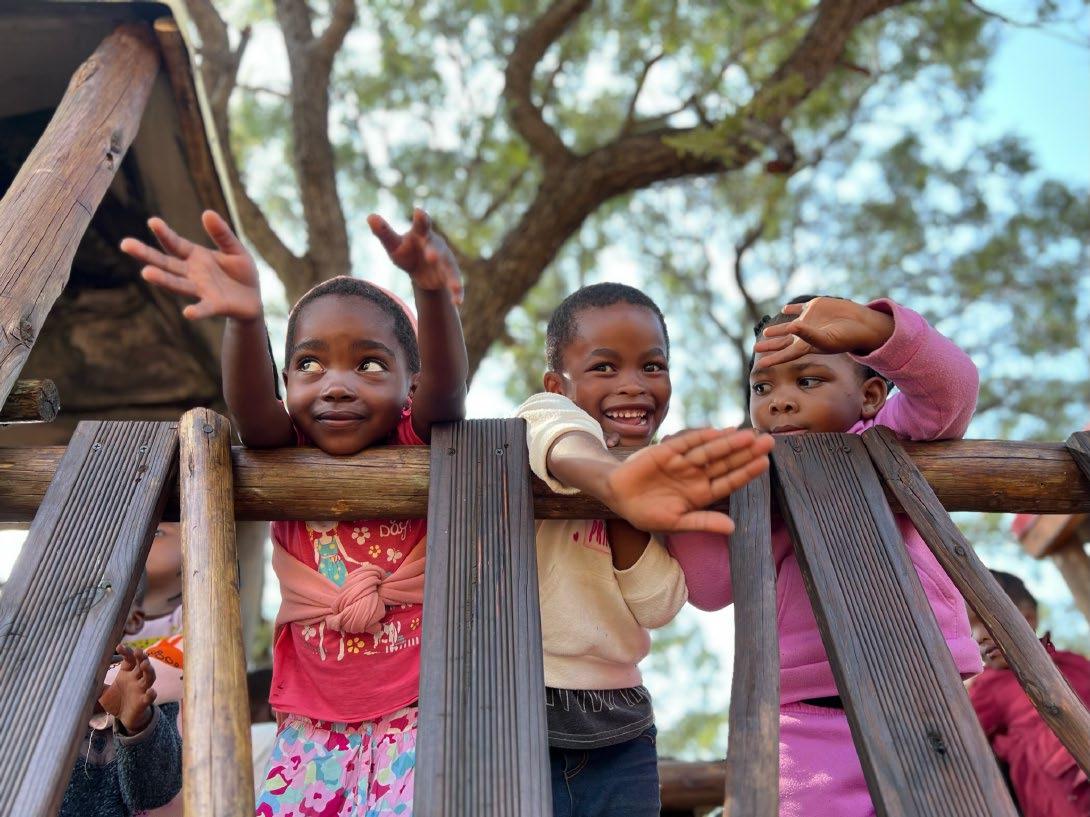

Cultivating new partnerships that provide access and support to early learning for marginalised children and children in crisis settings, through the Parent Playbox.
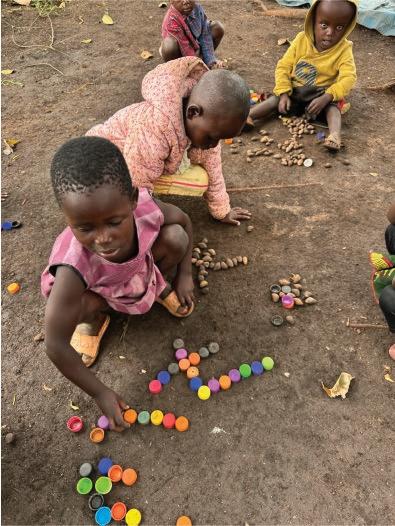
22. www.learntoplay.org
4. 3.
learn toplayTM meet the board
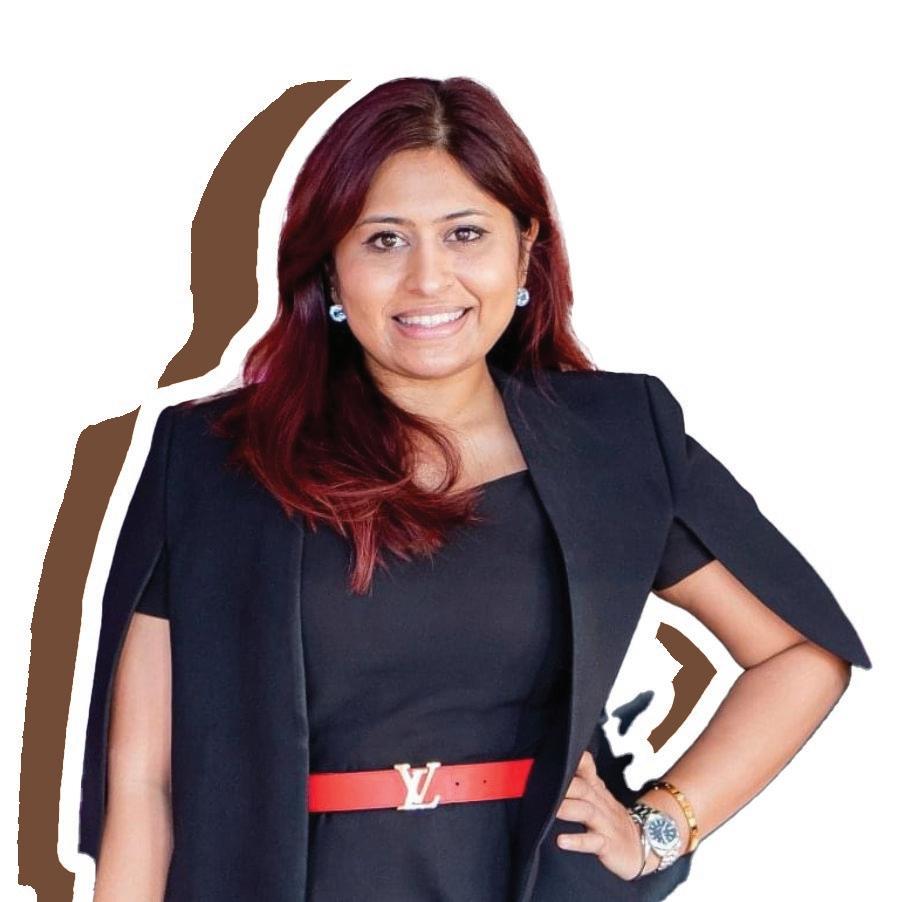
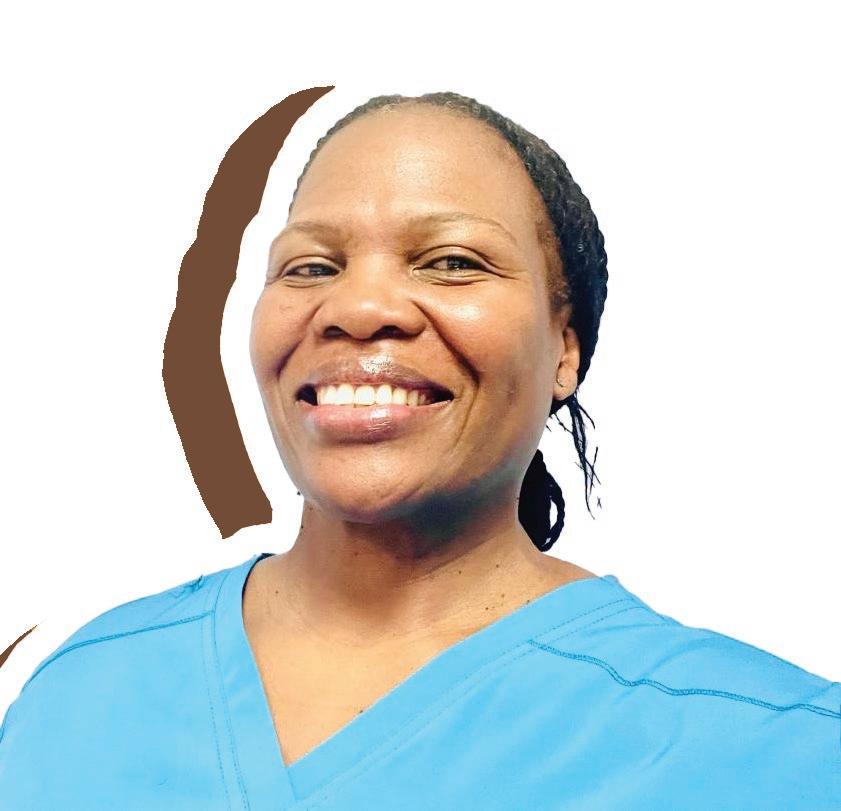
Dr. Matshediso

Board Chairperson Vice Chairperson Treasurer
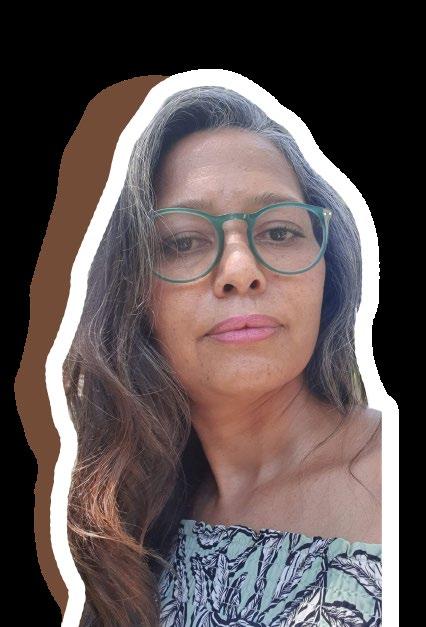
Co-Secretary

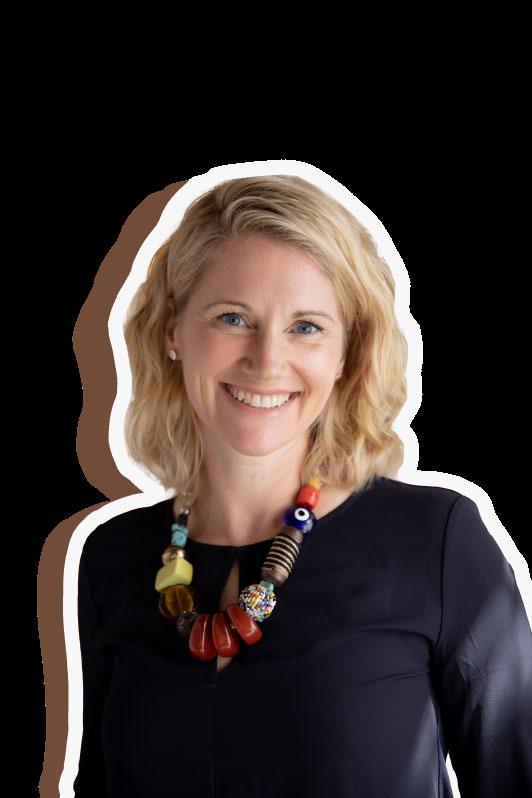
Co-Secretary Member
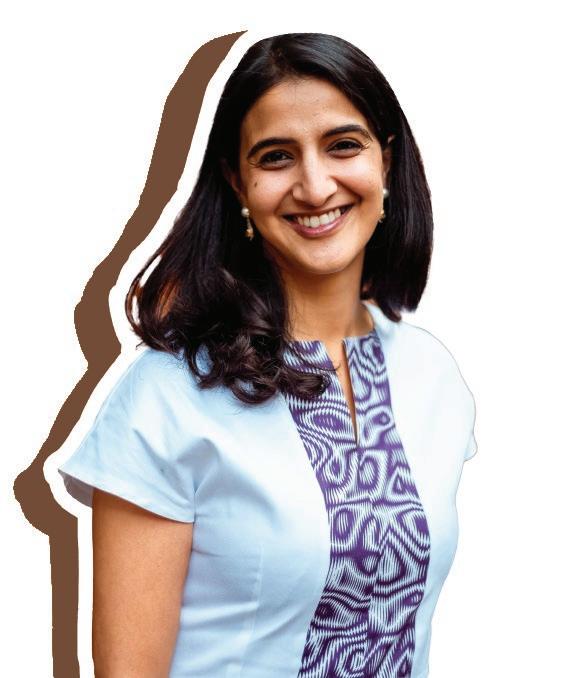
Executive Member
23.
Taazima Kala-Essack
Loungo Tibone
Priyanka Handa Ram
Kgamane
Karen Clune
Lauren Mistry
Evgeniya Troanska
41Maatla SupportingMamas acrossBotswana wholeadour

meet the team

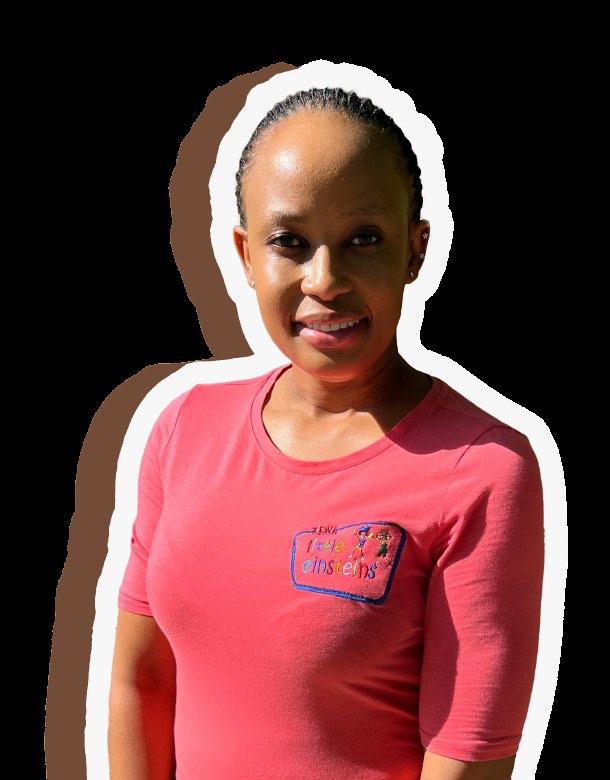

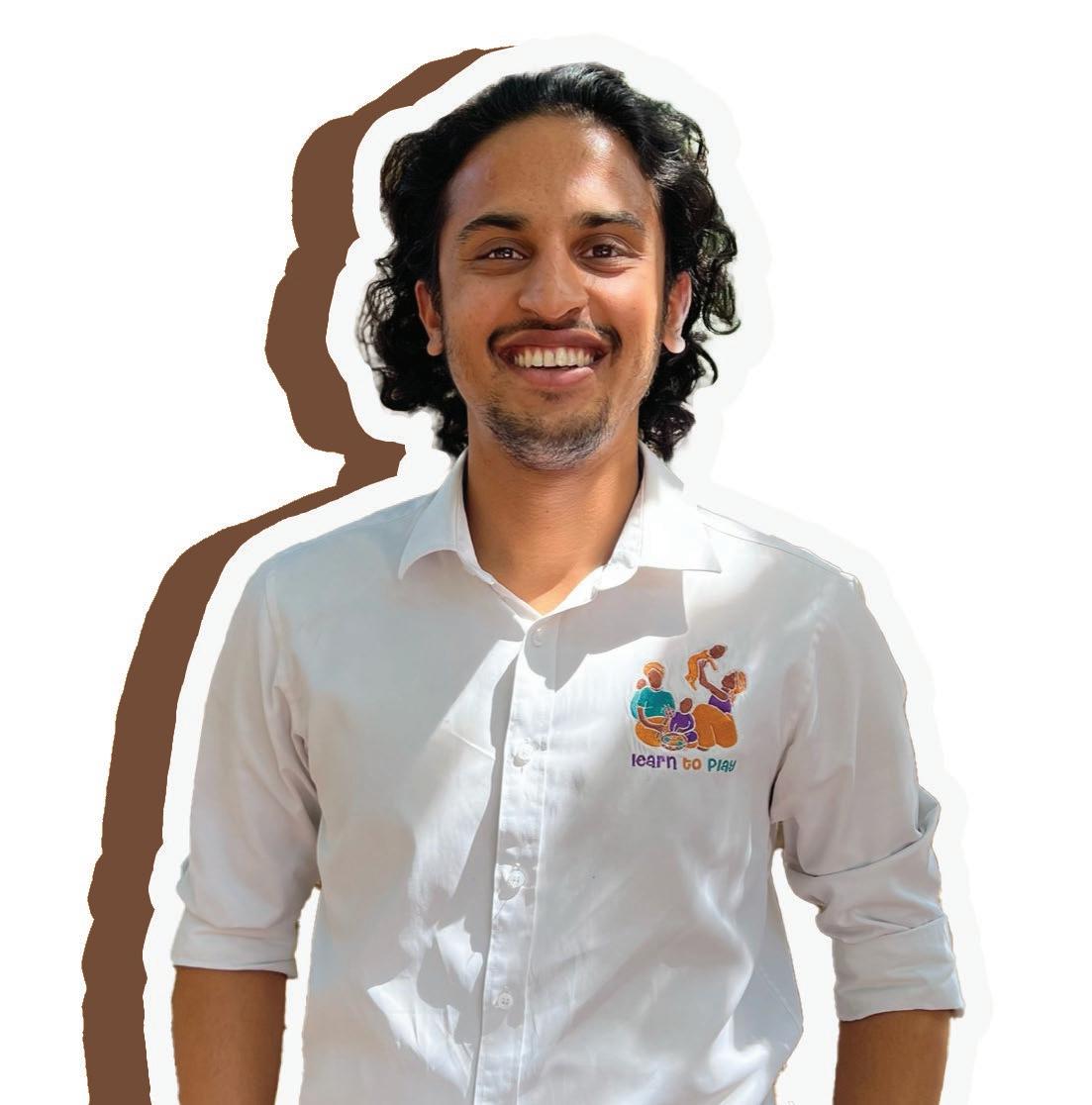

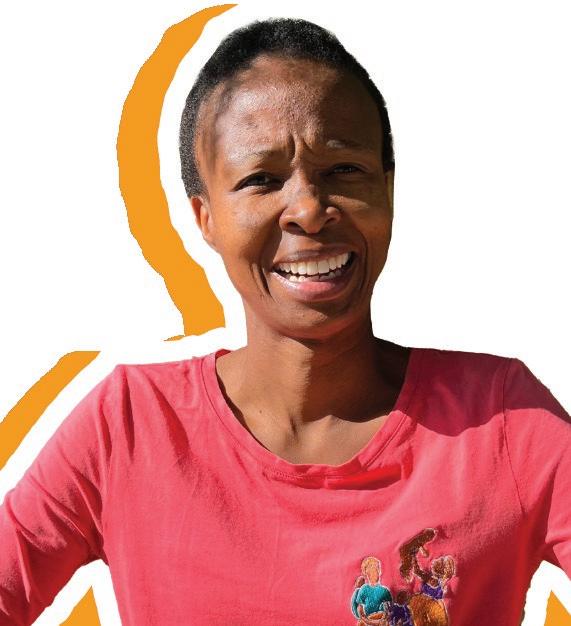
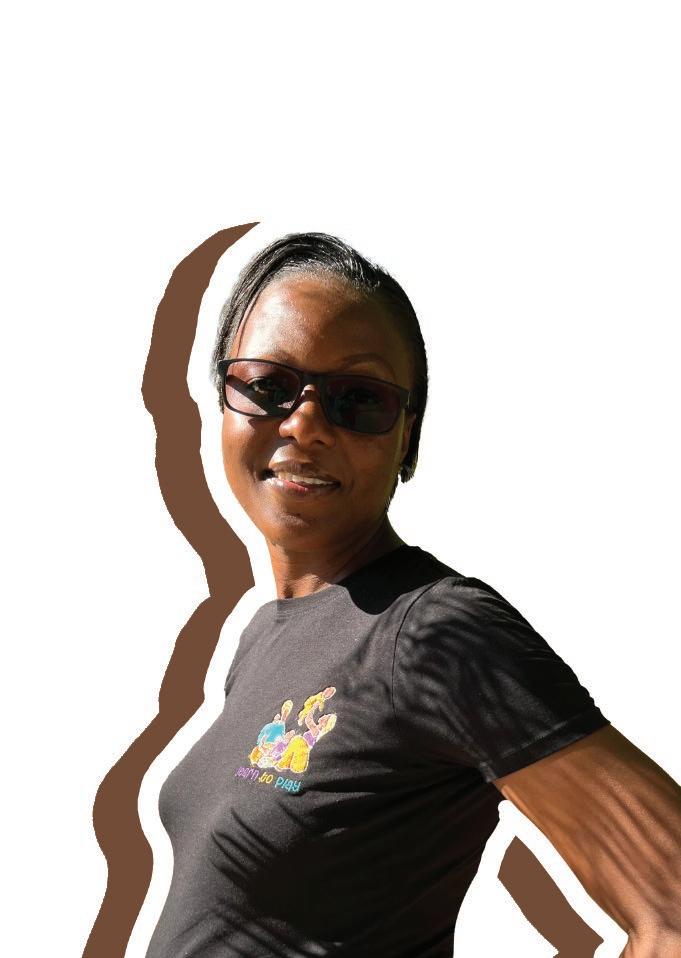
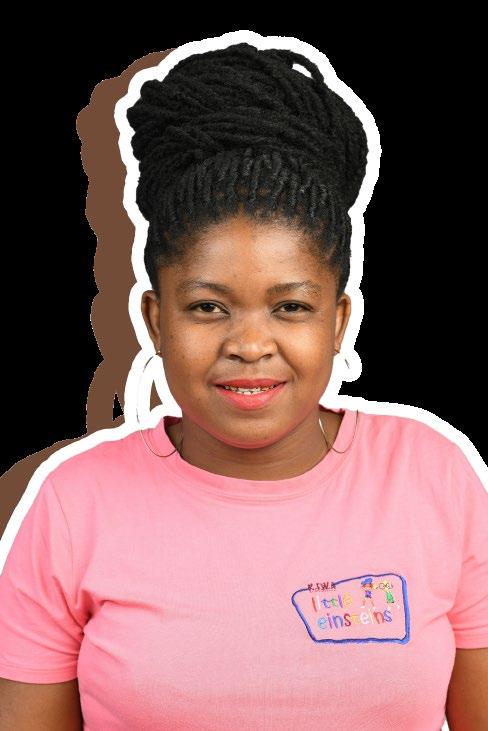
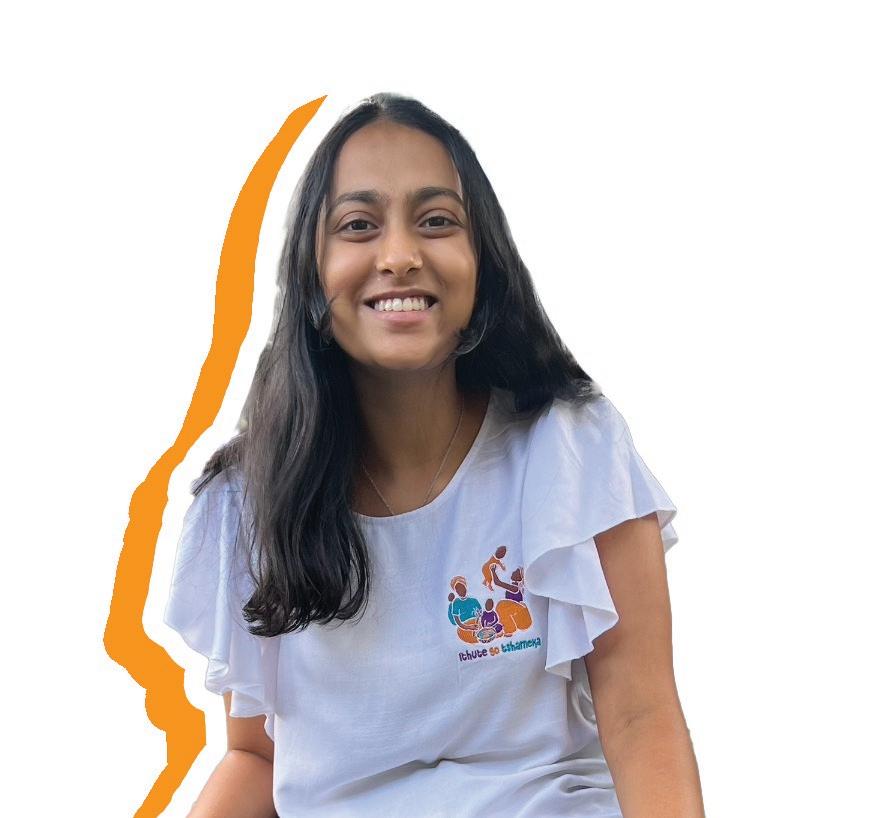
& Chief Energy Officer Co-founder & Chief Opportunities Officer Community Outreach & Impact Officer Elizabeth Mtsambiwa Little Einsteins Principal & Zanele Maotwe LTP Trainer Gomolemo Letsholo Social Media Intern Nayantara Vijay Accountant Eashwar Ramesh Mpolokeng Seadimo Monitoring & Evaluation Officer Lame Kealotswe
Handa Ram 24.
Co-founder
Priyanka
playgroups

Partners
Play Heroes
Tsabong District Council
Kids Collab
Earth Warriors
Theirworld
Children On The Edge
Chobe Safari Lodge
Kwando Safaris
Nata Lodge
Cheetah Conservation Botswana
Chobe District Council
Tutume District Council
North-West District Council
Ghanzi District Council
Village Development
Committees
Pula Sports Development
Ministry of Local Government
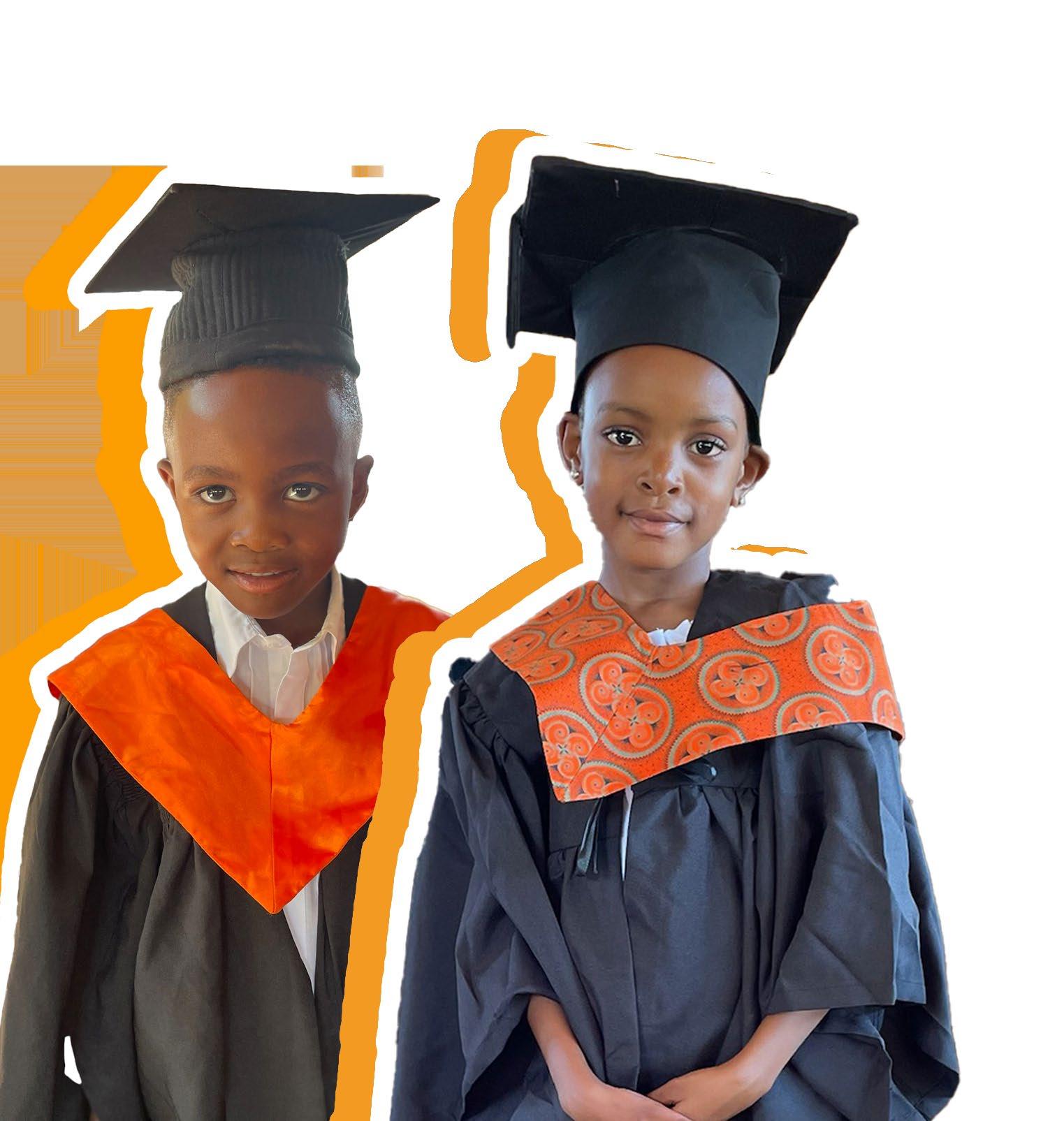
Goodhope District Council
25.
Donors

Play Heroes
Dovetail Impact Foundation
Elma Masana Wa Afrika
Allan and Gill Gray Philanthropy
First Capital Bank
Mr Veg
Masterprint
Dinesh Textiles
Sheela & Raja Ram
Aravinda and Ananth Ram
Priya and Sidharth Ram
Pushpa and Jay Ramesh
Girija and Anantharaman
Active Africa
Gernot & Marion Hebestreit
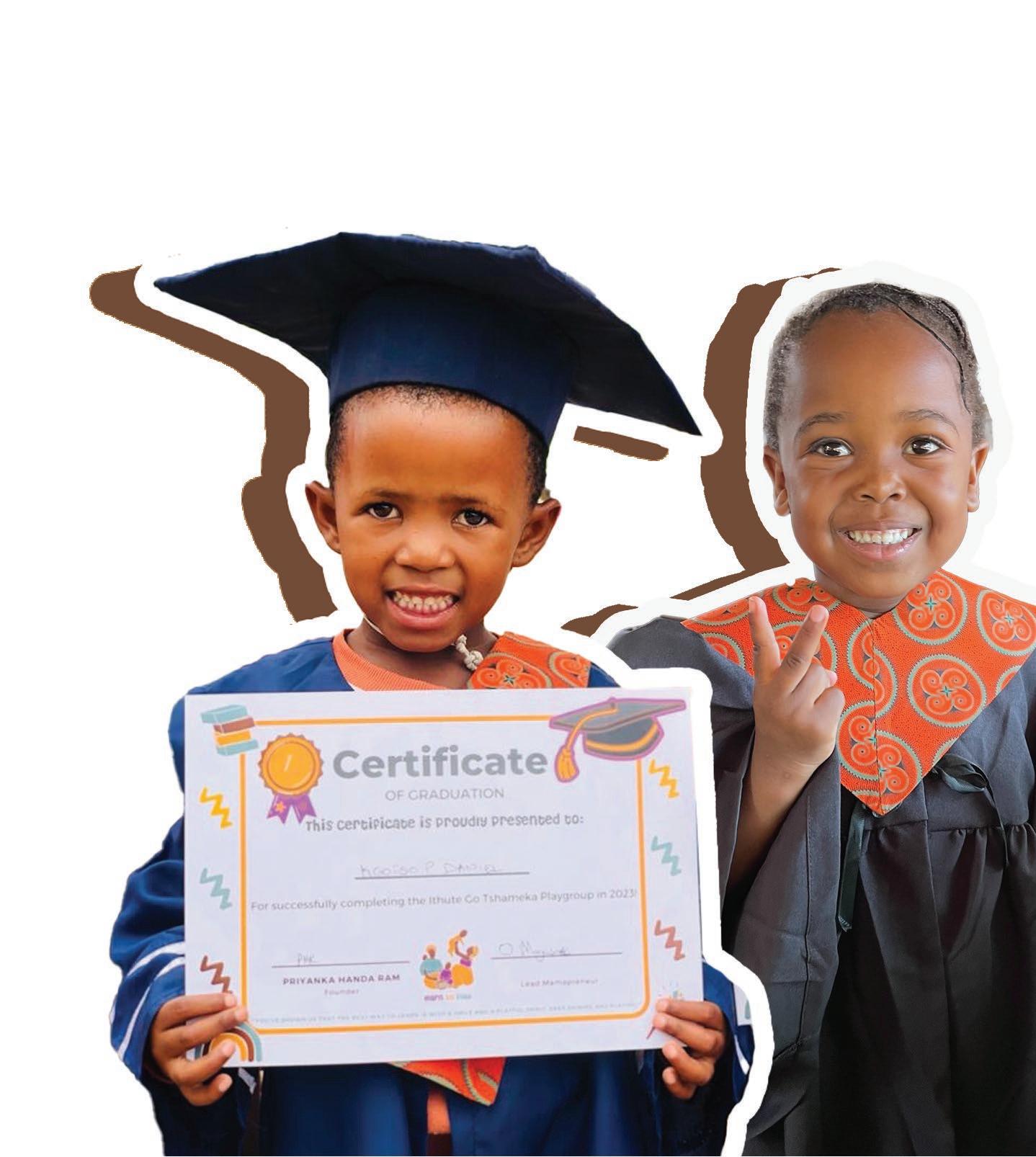
26.



www.learntoplay.org learn to play TM contact donations Gaborone Head Office +267 REWA3916741Education Centre,10289LeopardRoad, Gaborone, Botswana priyanka@learntoplay.org Donations can be made by EFT: Bank name: First National Bank (FNB) Account Name: Learn To Play Account no: 62773759918 Branch no: 282267 Swift no: FIRNBWGX Learn To Play - Ithute Go Tshameka






































































